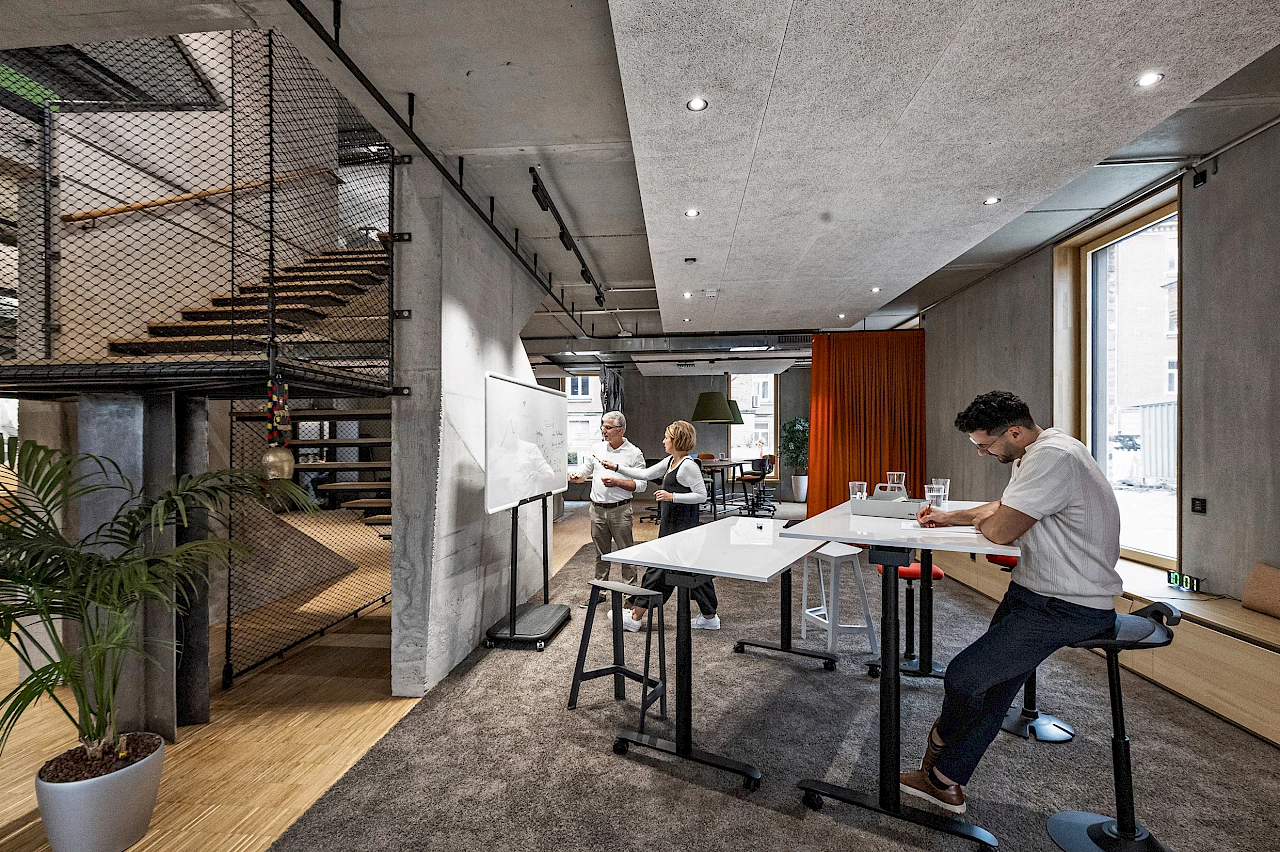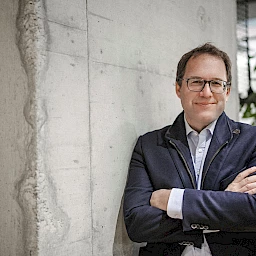On the Lagarde Campus in Bamberg, a former barracks site, Alpha IC GmbH has constructed RESI—an office building which the company describes as focussing on resource conservation and net zero energy consumption. This three-storey building does not require conventional heating and cooling systems and is intended to serve as a model project for energy-efficient construction. Managing Director Sebastian Hölzlein describes the basic principle as “less technology, more intelligence—and with net-zero energy consumption.”
From an idea to a pilot project
RESI is the acronym for Responsibility, Excellence, Sustainability and Innovation—the guiding principles that Alpha IC says were at the centre of the planning from the outset. The aim was not only to create a functional office building, but also to contribute to the discussion on climate-resilient construction methods. The architectural practice hehnpohl architektur bda (Münster) designed the building with a clear, restrained formal vocabulary. The façades of reused clinker brick slips echo the brick look of the surrounding buildings, which were formerly used for military purposes, in a contemporary way while conveying a durable, robust impression. According to Alpha IC, the construction period of around 13 months from the start of construction to completion at the beginning of 2025 was made possible by an intensive planning period with all parties involved and the partnership-based cooperation with the general contractor Zech Bau SE. The contract was concluded as a “guaranteed maximum price”, so that there was early planning certainty regarding costs and deadlines.
Low-tech strategy and indoor climate
The heart of the concept is conscious avoidance of conventional heating and cooling systems. Instead, solid, heat-retaining masonry made from recycled concrete is used. A ventilation system with night cooling utilizes the natural thermal mass to passively regulate the indoor climate. An electrical heating coil is available for exceptional cases. Sebastian Hellmeier explains: “We want to consistently utilize the physical properties of materials and air flows instead of compensating with complex technology.” Users report that the room temperature remains stable at around 25 to 26 °C even on hot summer days. External, independent assessments of the indoor climate are currently being documented and analysed as part of a scientific project with the Georg Simon Ohm University of Applied Sciences in Nuremberg. Work to make the building performance accessible live is also being carried out in collaboration with the company Heros.
Net-zero balance sheet and closed-loop principle
A large-scale in-roof photovoltaic system guarantees the energy supply. Averaged over the year, it produces more electricity than the building consumes. Surpluses are fed into the public grid and deficits are quickly offset. This results in a net zero balance in operation. Alpha IC emphasizes that energy efficiency also offers economic advantages. Lower operating costs enable stable gross warm rents in the long term, which is particularly advantageous for tenants in view of rising energy and CO2 prices. The project also pursues a consistent circular approach: recycled concrete and reused clinker brick slips were used, and a building resource passport documents all materials used to ensure their recovery at the end of their life cycle. RESI’s life cycle assessment in the context of certification in accordance with the German Sustainable Building Council (DGNB) system achieves 100 out of 100 points; overall, the DGNB Gold award level is aimed for and expected.
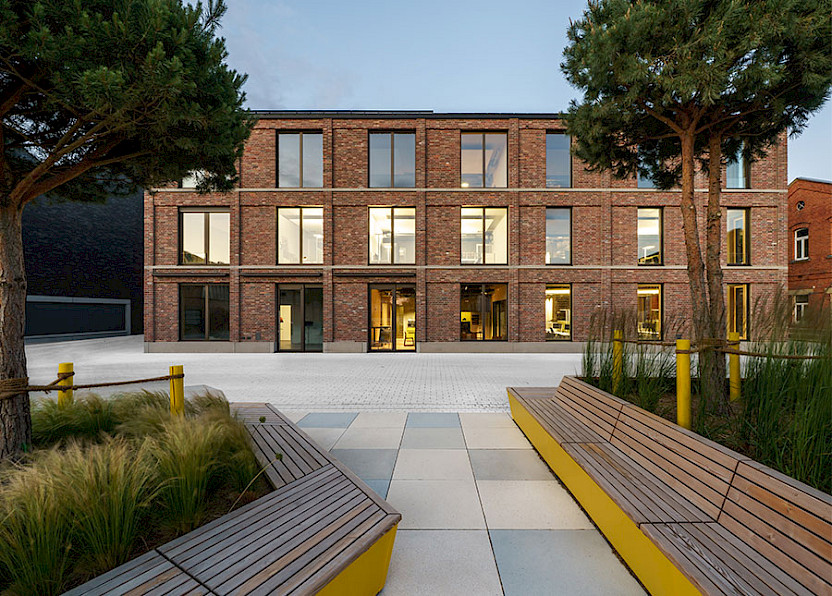
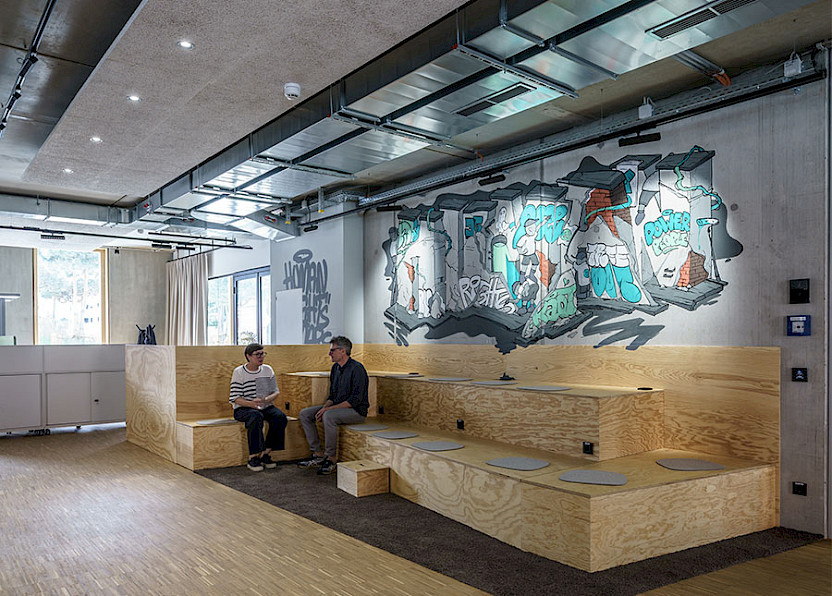
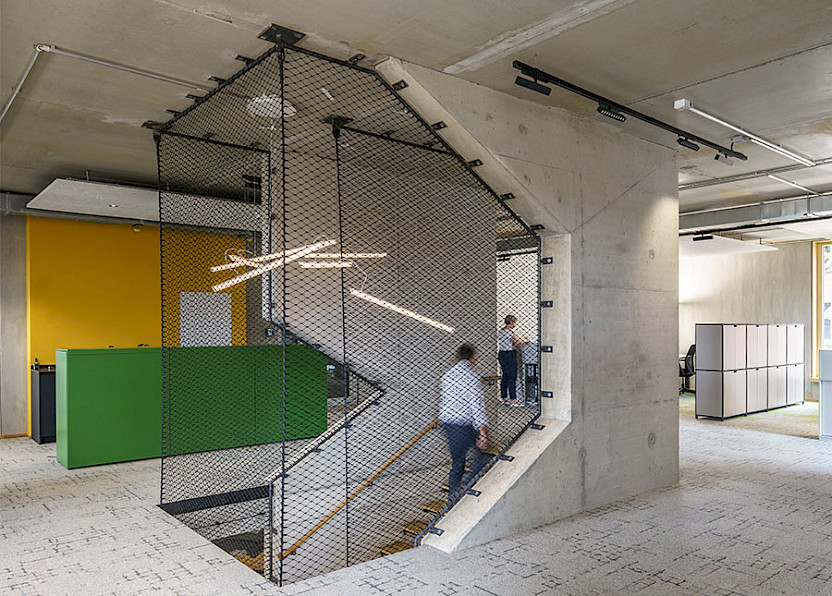
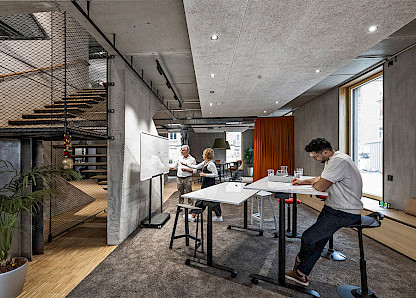
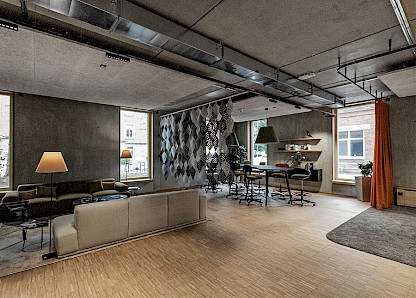
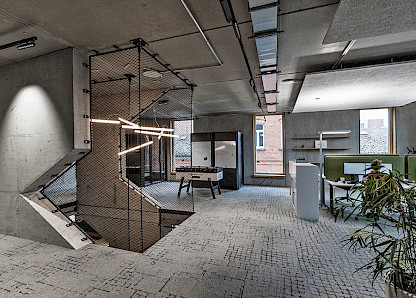
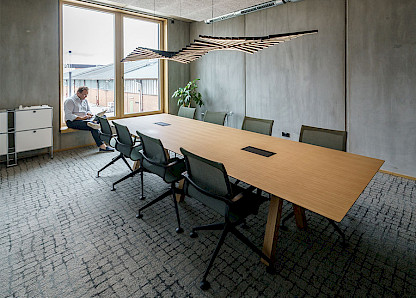
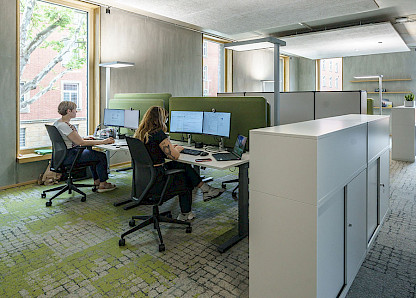
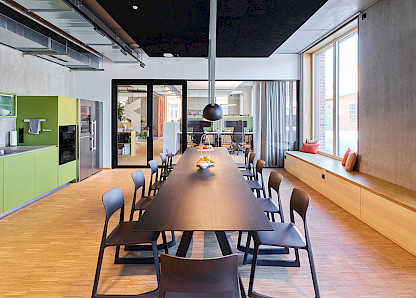
Participation and a culture of trust
Employee involvement was a central element in the planning of RESI. Workshops and feedback loops to define the requirements for workstations and room layouts were organized at an early stage. They were not just about floor plan issues, but also about the development and implementation of a future-orientated workplace concept for activity-based working. Today, the building offers a wide variety of activity-based working environments: open zones for teamwork, retreat spaces for concentrated work, telephone boxes, creative workshop areas, a speaker’s platform for dialogue and events and flexible meeting rooms. A special feature is that the use of these areas is completely free and without compulsory attendance. Working and office hours are based entirely on trust; bookings are made via a self-programmed app. According to Alpha IC, this approach means that many employees enjoy coming to the office and do so more frequently than average.
Open to the city and its people
RESI sees itself not only as a company headquarters, but also as an open place for the public. A café on the ground floor is open to visitors and some of the office space can be used by external companies. Alpha IC also emphasizes the aspect of the values dialogue, which focuses on social issues such as sustainability, responsibility and innovation. Cooperations with start-ups, technology companies and creative projects are to be promoted in the immediate vicinity of the Lagarde cultural quarter in order to create momentum for innovation and collaboration. The large-scale “Human Rights Square” graffiti on the open-plan ground floor and entrance area makes a visual statement. It references the location on Platz der Menschenrechte and emphasizes the claim to make values and attitude visible, albeit in a restrained manner and as part of the overall design.
RESI in the context of a new building and working culture
With RESI, Alpha IC shows how ecological responsibility, cycle-orientated construction and flexible working models can be combined. The building is an example of a development that is also being discussed in the IBA Forum community: How can places be created that not only conserve resources but also promote values, cooperation and dialogue? RESI sees itself as a real-world laboratory for these issues and as a practical response to problems such as climate resilience, energy efficiency and a changing world of work. At the same time, the project raises new questions: Can a low-tech approach be implemented on a larger scale or in other climate zones? What conditions are necessary for the widespread application of such concepts?
As part of the “IBA on site” series, RESI will serve as a source of inspiration. It shows that sustainable construction methods and a trust-based working environment need not be a contradiction in terms, but can be a viable model for the future—provided that the users are consistently involved.
The IBA Forum editorial team spoke to Sebastian Hölzlein, co-founder and managing partner of Alpha IC GmbH, and Andrea Schmidt, partner and change expert at Alpha IC. The company, which has around 80 employees, has been advising on sustainable property strategies and developing concepts for climate-resilient working environments for almost 25 years. With RESI on the Lagarde campus in Bamberg, Alpha IC has now also designed its own headquarters according to these principles. You can find further information at https://www.alpha-ic.com/en.
Cover photo: Karolina Parot
Photos: Karolina Parot, hehnpohl architektur bda, Greb Wohnwork



